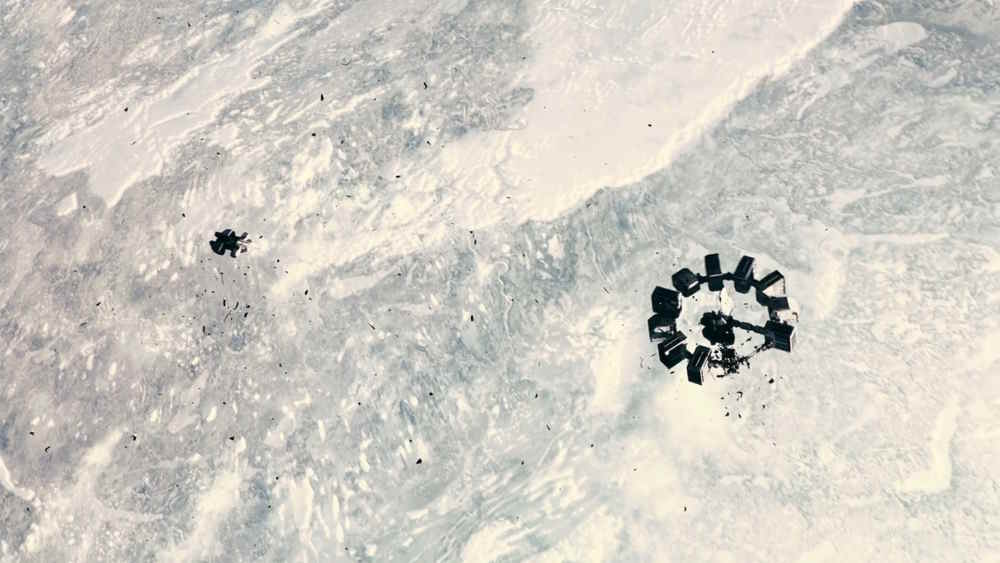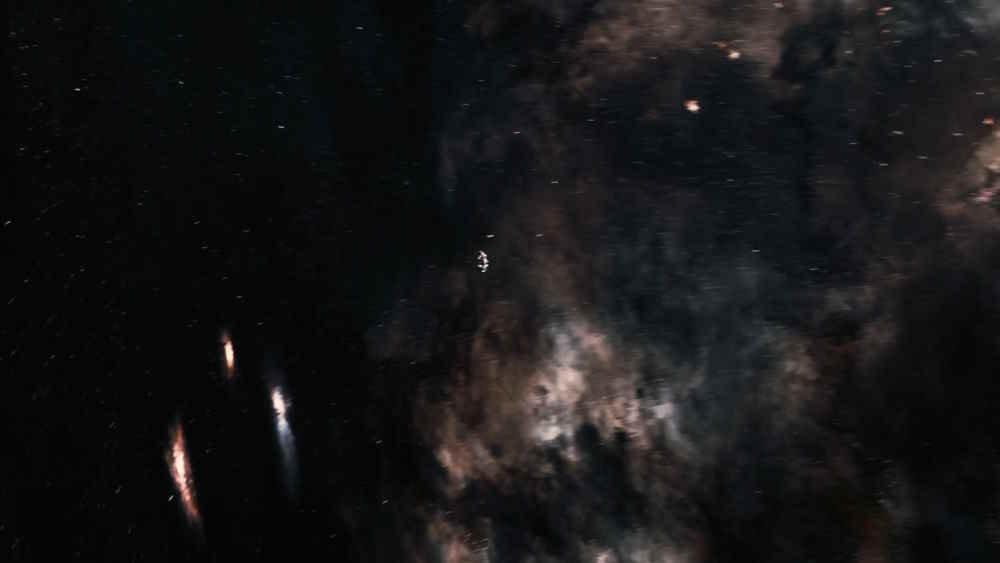Sit tibi terra levis, Jacobe Lovell. I’ll be busting out my copy of Lost Moon in his honour.
Posts tagged as “space”
Sometimes i translate news headlines into Ancient Greek for practice — i thought i’d post a recent one here, just because. :-)
Ὁ Κόσμος ΥΠΒʹ, σοβιετικὴ ἀστροναῦς ἣ πεντήκοντα τρία ἔτη ἐκύκλει, κατέρραξέ ποι ὑπὲρ τῆς Ἐρυθρᾶς Θαλάττης. Ἐβουλεύθη μὲν εἰς τὸν Ἕσπερον τὸ πλοῖον, εἴκοσι ταλάντων τὸν σταθμόν, πορεύεσθαι· ἐξώκειλε δὲ περὶ τὴν Γῆν.
Translation (and transliteration)
Ho Cósmos CDLXXXII, sobieticḕ astronaûs hḕ pentḗconta tría étē ecýclei, catérrhaxé poi hypèr tês Erythrâs Thaláttēs. Ebouleúthē mèn eis tòn Hésperon tò plœ̂on, eícosi talántōn tòn stathmón, poreúesthæ; exṓceile dè perì tḕn Gên.
Kosmos 482, a Soviet spacecraft which had been in orbit for fifty-three years, crashed down somewhere over the Indian Ocean. The craft, weighing twenty talents, was intended to travel to Venus, but ran aground around the Earth.
My first love

When i was eleven, my dad told me to come downstairs. (I was on holiday at the time, you see, on my semiannual Divorce Custody Trip® back to the fatherland, where i could gorge myself on as many sweets and spit out as many cuss words as i wanted.) He had something to show me on his home cinema setup.
Normally it would be some documentary about watchmaking or nuclear waste storage or any number of things that took his fleeting fancy. Neither of us were much for fiction, and my young self especially wasn’t much of a cinephile. I don’t think my taste in movies had updated much since i watched Finding Nemo on a loop at age three.
Two and a half hours later, there i was, on his lily-white fake-leather sofa, my jaw agape, needing a lie down to take it all in. That was the day i met my first favourite film: Interstellar.

Christopher Nolan has a reputation for mind-bending bombast, but his directing is actually quite plain when you get down to it. His palette of colours would be more at home in a hardware store than an art department.a He has little time for the fancy camera trickery so beloved by his fellow mass-market auteurs like Spielberg and Zemeckis. He shoots his pictures as they are, not as a painter might like them to be.
It works to his detriment as often as in his favour. The Dark Knight trilogy’s dedication to surgically removing every ounce of colour and whimsy from its inherently campy source sucks it dry of life and fun. (Whenever Heath Ledger isn’t on screen, all the other characters should be asking, “where’s the Joker?”) But in the intervening years, it seems that Mr Nolan figured out how to use his un-style to his advantage.
On Earth, he shoots everything like, well, a Christopher Nolan film — a look that perfectly suits such a drab, dying world of omnipresent dust storms and weltering crops. When the plot shoots past the stratosphere and into the stars, he anchors his fantastic alien worlds and black holes of tantalising beauty against that same pedestrian style; devoid of his peers’ tricks and flourishes, you get the sense that if his gargantuan star-eaters and tome-tiled tesseracts were real, this is exactly what they would look like.

Much has been made of Interstellar’s Achilles’ heel: lurve. I'd like to offer a lukewarm defence. Many take Anne Hathaway’s speech about love as a force “transcending dimensions of time and space” as exposition, seeing her character, Amelia Brand, as a simple mouthpiece for the Messrs Nolan’s hamfisted platitudes. I would call this a severely mistaken interpretation.
Dr Brand’s lines come at the lowest point in her life. She has spent years — decades, from Earth’s view — floating alone in space; now, the crew have to decide how to use their one remaining shot to save all mankind. She isn’t making any profound statements or logical arguments. She is desperately trying to explain to the two men beside her why she thinks, right or wrong, that they should take the risk and visit her former lover’s last known location rather than the closer world the other two prefer. It’s clunky and melodramatic, but that’s the point: she’s grasping at straws, willing to do anything to see her love again. Her speech gives balance against her comrades’ assumption that cold, hard logic is all that matters, throwing gut feeling and emotion out the airlock.
When Cooper falls into that black hole and finds himself wall to wall with a myriad versions of his daughter, it isn’t some literal fundamental force of “love” that brings him there. It is his acceptance of Dr Brand’s romanticism over Mann’s enlightenment. Cold calculations have brought him nought but ruin, forcing him to watch his daughter grow up in front of his eyes and nearly killing both him and the whole human race; so, he lays down his mask, dives into what science tells him is certain doom, and lets the man who wept at those 20 years of messages take control.
I’m not sure that it all comes together in the end. Matthew McConaughey is a fine performer, but the role of Cooper deserves someone who can give it the gravitas (heh) and sensitivity his trauma deserves — not just screaming “Murph!!!” over and over. Mr Nolan’s script is utilitarian as ever; misunderstood as it may be, Dr Brand’s tangent fits into the rest of the film about as well as a cat fits into a baseball glove.
That slack-jawed night on the sofa would begin a new tradition. Every time i shuttle back and forth between England and Holland, i queue up Hans Zimmer’s score on my earbuds, and try to time it juuuuust right, such that the second the jet takes off, “Mountains” comes to its peak or “No Time for Caution”’s organs begin to blare. There’s a lot of flicks i like better these days — Interstellar would probably barely scrape the top ten — but there’ll always be a warm place in my heart for my first love.

Shatner on space
I was originally going to post this excerpt from William Shatner’s new memoir, printed in Variety, alongside the usual link roundup, but something about it touched me enough to give it its own post.
Mr Shatner, in his own words, on his first trip to space:
I continued my self-guided tour and turned my head to face the other direction, to stare into space. I love the mystery of the universe. I love all the questions that have come to us over thousands of years of exploration and hypotheses. Stars exploding years ago, their light traveling to us years later; black holes absorbing energy; satellites showing us entire galaxies in areas thought to be devoid of matter entirely… all of that has thrilled me for years… but when I looked in the opposite direction, into space, there was no mystery, no majestic awe to behold … all I saw was death.
I saw a cold, dark, black emptiness. It was unlike any blackness you can see or feel on Earth. It was deep, enveloping, all-encompassing. I turned back toward the light of home. I could see the curvature of Earth, the beige of the desert, the white of the clouds and the blue of the sky. It was life. Nurturing, sustaining, life. Mother Earth. Gaia. And I was leaving her.
[…]It was among the strongest feelings of grief I have ever encountered. The contrast between the vicious coldness of space and the warm nurturing of Earth below filled me with overwhelming sadness. Every day, we are confronted with the knowledge of further destruction of Earth at our hands: the extinction of animal species, of flora and fauna … things that took five billion years to evolve, and suddenly we will never see them again because of the interference of mankind. It filled me with dread. My trip to space was supposed to be a celebration; instead, it felt like a funeral.
Upon returning to earth, and trying to put his story into words for the first time, he was, as you may remember, bluntly cut off by Jeff Bezos, asking for more champagne: